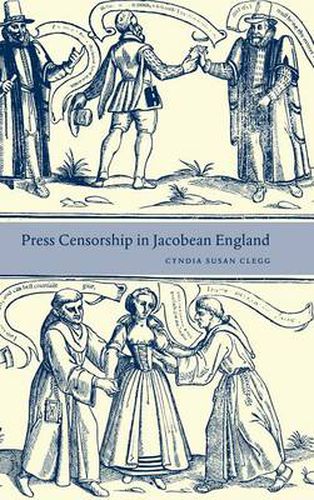Readings Newsletter
Become a Readings Member to make your shopping experience even easier.
Sign in or sign up for free!
You’re not far away from qualifying for FREE standard shipping within Australia
You’ve qualified for FREE standard shipping within Australia
The cart is loading…






This book examines the ways in which books were produced, read, and received during the reign of King James I. It challenges prevailing attitudes that press censorship in Jacobean England differed little from either the ‘whole machinery of control’ enacted by the Court of Star Chamber under Elizabeth or the draconian campaign implemented by Archbishop Laud, during the reign of Charles I. Cyndia Clegg, building on her earlier study Press Censorship in Elizabethan England, contends that although the principal mechanisms for controlling the press altered little between 1558 and 1603, the actual practice of censorship under King James I varied significantly from Elizabethan practice. The book combines historical analysis of documents with literary reading of censored texts and exposes the kinds of tensions that really mattered in Jacobean culture. It will be an invaluable resource for literary scholars and historians alike.
$9.00 standard shipping within Australia
FREE standard shipping within Australia for orders over $100.00
Express & International shipping calculated at checkout
This book examines the ways in which books were produced, read, and received during the reign of King James I. It challenges prevailing attitudes that press censorship in Jacobean England differed little from either the ‘whole machinery of control’ enacted by the Court of Star Chamber under Elizabeth or the draconian campaign implemented by Archbishop Laud, during the reign of Charles I. Cyndia Clegg, building on her earlier study Press Censorship in Elizabethan England, contends that although the principal mechanisms for controlling the press altered little between 1558 and 1603, the actual practice of censorship under King James I varied significantly from Elizabethan practice. The book combines historical analysis of documents with literary reading of censored texts and exposes the kinds of tensions that really mattered in Jacobean culture. It will be an invaluable resource for literary scholars and historians alike.